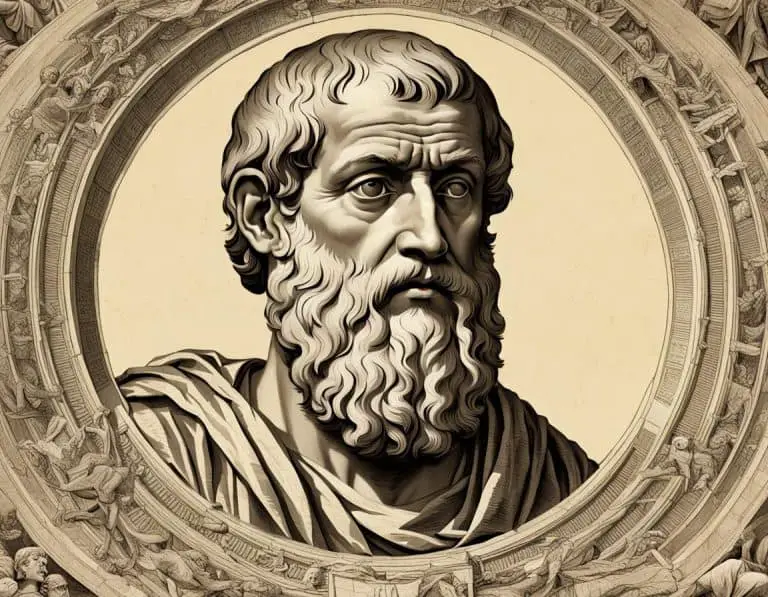Plato’s Dialogues and Writing Style
Plato’s dialogues have stood the test of time as exemplary works of philosophical literature. His writing style is unique in the way it presents profound philosophical ideas through engaging conversations between characters. Through these dialogues, Plato was able to not only convey his own philosophical beliefs but also challenge readers to critically think about the complexities of ethics, politics, metaphysics, and more. The characters in his dialogues, such as Socrates, engage in thought-provoking discussions that continue to captivate readers and scholars alike.
Furthermore, Plato’s dialogues are more than just philosophical treatises – they are also works of art. His ability to craft compelling narratives within the dialogue format demonstrates his mastery as a writer. The dialogues are structured in a way that draws readers in, inviting them to explore deep philosophical questions alongside the characters. This unique blend of philosophical inquiry and literary craftsmanship sets Plato apart as one of the most influential thinkers in Western philosophy.
Unraveling the Socratic Method in Plato’s Works
The Socratic method, a hallmark of Plato’s philosophical works, is a dialectical approach aimed at eliciting truth through a series of questions and answers. In Plato’s dialogues, we see Socrates engaging in conversations with interlocutors to probe their beliefs, challenge assumptions, and ultimately arrive at a deeper understanding of complex issues. This method is not merely a teaching tool but a way of philosophizing that emphasizes critical thinking, logical reasoning, and the pursuit of knowledge.
Through the Socratic method, Plato encourages readers to question their own beliefs, examine the foundations of their knowledge, and seek truth through intellectual inquiry. By engaging in this process of inquiry, individuals are compelled to think critically, reflect on their beliefs, and embrace intellectual humility. The Socratic method, as depicted in Plato’s dialogues, serves as a timeless model for philosophical inquiry and has left a lasting impact on the tradition of Western philosophy.
Plato’s Legacy in Modern Philosophy
Plato’s legacy in modern philosophy is undeniable, as his ideas continue to shape the way we perceive the world and seek knowledge. Many contemporary philosophers have drawn inspiration from Plato’s works, particularly his theories on metaphysics, ethics, and politics. The concept of the “Platonic forms” still resonates with thinkers today, sparking discussions on the nature of reality and the existence of universal truths.
Moreover, Plato’s emphasis on the pursuit of truth and virtue has left a lasting impression on the field of ethics. His dialogues, such as “The Republic” and “The Symposium,” challenge readers to reflect on justice, morality, and the ideal society. In an age of moral relativism and societal discord, Plato’s philosophical insights offer a timeless guide for navigating complex ethical dilemmas and striving for a more just and harmonious world.
Tracing Plato’s Influence on Contemporary Thinkers
Plato’s profound impact on contemporary thinkers is evident in various facets of modern philosophy. His enduring influence can be seen in the works of renowned philosophers who have drawn inspiration from his theories and ideas. Contemporary thinkers continue to engage with Plato’s concepts, adapting and expanding upon them to address contemporary philosophical inquiries. The timeless relevance of Plato’s philosophical inquiries resonates with thinkers across different eras, highlighting the enduring nature of his contributions to the intellectual landscape.
From ethics to metaphysics, Plato’s ideas form a foundational pillar for many contemporary philosophical debates. His nuanced exploration of justice, truth, and the nature of reality continues to spark discussions among modern philosophers seeking to delve deeper into these fundamental concepts. By incorporating Plato’s teachings into their own philosophical frameworks, contemporary thinkers pay homage to his enduring legacy while simultaneously contributing to the ongoing evolution of philosophical discourse.
Criticisms of Plato’s Philosophy
While Plato is revered for his contributions to Western philosophy, his ideas have not escaped criticism. One of the main criticisms of Plato’s philosophy is his idealism, particularly his theory of the Forms. Critics argue that the existence of abstract, perfect Forms outside the physical world is too abstract and unverifiable. Furthermore, Plato’s reliance on intuition and reason to access these Forms has been seen as problematic, as it leaves little room for empirical evidence and scientific inquiry.
Another critique often leveled against Plato is his political philosophy, as outlined in “The Republic.” Critics contend that Plato’s ideal city-state ruled by philosopher-kings is impractical and even totalitarian in nature. The lack of individual freedoms and strict social hierarchy envisioned by Plato has been criticized for stifling personal liberties and diversity of thought. Additionally, some argue that Plato’s dismissal of art and poetry in the ideal state as mere imitations of reality limits human expression and creativity.
Analyzing the Weaknesses in Plato’s Theories
One of the primary criticisms directed towards Plato’s philosophy revolves around his concept of the Theory of Forms. Detractors argue that the idea of a perfect realm of Forms, where material objects only imitate their ideal counterparts, is overly abstract and detached from the tangible world. This criticism suggests that Plato’s philosophical framework might be too idealistic, failing to fully acknowledge the complexities and imperfections of the physical realm we inhabit.
Furthermore, Plato’s belief in the inherent hierarchy of knowledge, where philosophers reign supreme and the masses are deemed incapable of grasping higher truths, has also been a point of contention. Critics argue that this elitist view undermines the democratic potential of knowledge and disregards the diverse perspectives and contributions that individuals from all walks of life can offer to the pursuit of truth. This critique challenges the exclusivity embedded within Plato’s philosophy, highlighting the need for a more inclusive and egalitarian approach to philosophical inquiry.
Related Links
What Were Plato’s Key Contributions to Western Philosophy
What Are the Major Works of Plato in Relation to Western Philosophy
